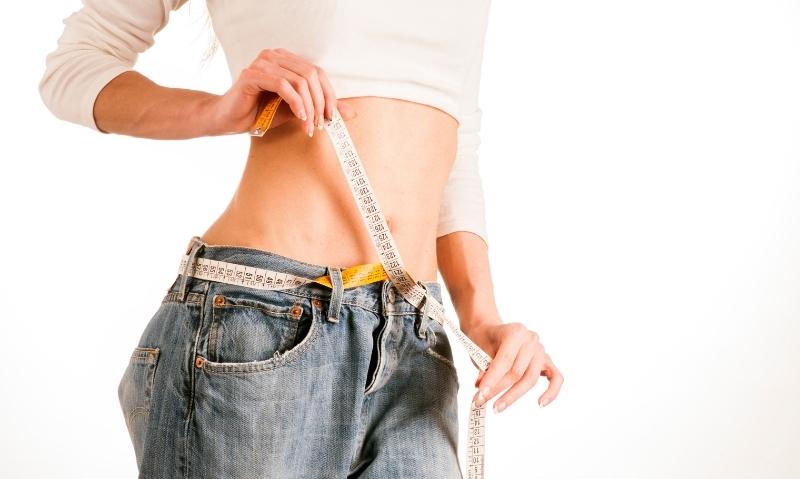
It seems these days, anyone interested in a weight loss program is also looking for a quick fix.
Most recently, the coolest diet is a very low-carb, high-fat diet known as the ketogenic diet or keto diet for short.
Everyone seems to be losing weight fast and keeping the weight off.
Even celebrities like Halle Berry, Mark Consuelos, and Jenna Jameson swear by the keto diet.
Diets usually come in various combinations of Carbs, Protein, or Fat.
Some extreme cases even remove whole food groups.
Diets can be seen as a form of medication, and are even advised by doctors.
Such as a low-carb diet for people with Diabetes. Or the keto diet for people with epilepsy.
Some people with medical conditions, need macronutrients in balance and should not follow the keto diet.
What Is The Ketogenic Diet?

Also known as the Keto Diet, is known for its very low carb usually under 50 grams, high fat, and moderate protein intake.
The goal is to reach a state of ketosis to help burn fat.
As a Registered Dietitian Nutritionist, I am often asked by dieters is keto healthy? or is it a fad diet? or is the keto diet safe?
Most times the answer is not black and white, at least not with this diet.
Its original use was to treat people with epilepsy, it stopped being used once anti-epileptic drugs were made (15).
Most recently, it’s now used to help control symptoms of children with epilepsy by helping control seizures.
The keto diet can also be used for weight loss and this is the reason for the large buzz around it.
Although the first few weeks and pounds lost can be due to water weight loss, it is enough to keep dieters interested and motivated.
The idea is, that by reducing carbohydrates and increasing fat intake you tell your body that there aren’t enough carbs to fuel your body.
Your body needs to find another source of fuel, and that source is fat. Your body breaks down fat and into ketone bodies when it enters into ketosis.
These ketone bodies become the source of fuel for your body, and you start to break down that fat stored in your body, helping you achieve the goal of weight loss.
The Following People Should Stay Away From the Keto Diet

1. Pregnant Women
When pregnant, it is important to have a balanced normal diet. During pregnancy the baby demands nutrients to grow and develop.
It is even advised to take prenatal vitamins to help with providing nutrients (10).
The keto diet is not good for pregnant women.
It severely restricts carbohydrate intake which provides the necessary calories for energy for the baby’s healthy growth.
And the restriction of carbs can result in, negative side effects like fatigue, headaches, and mood swings.
Also, the foods that are typically removed by the keto diet are the same ones that provide the vitamins and minerals that help the development of a baby.
2. Kidney Issues
We all have two kidneys, they are bean-shaped, the size of your fist, and sit on either side of your spine.
Kidneys remove waste and extra water by filtering your blood to make urine.
They also make hormones that control blood pressure, make red blood cells, and keep the body healthy (17).
Also, they manage sodium, calcium, phosphorus, and potassium.
When any of these are out of balance the nerves, muscles and any other tissues that depend on these minerals may not work properly. (17)
When on a keto diet, such a strict diet can lead to possible nutrient deficiencies, although this can be fixed with multivitamins.
The reality is that the best source of nutrients is fresh foods.
If you have Chronic kidney disease your kidneys are already struggling.
It is important to always check with your doctor if you have kidney disease before you start with restrictive diets.
Kidney Stones can also develop during a keto diet, from the high intake of animal protein in combination with dehydration.
The acid created by animal protein limits the ability of the body to remove extra calcium and uric acid contributing to the creation of kidney stones (7).
3. Eating Disorders
Eating disorders, are a broad name for several different types of eating behaviors formed by an unhealthy relationship with food.
A keto diet can sound appealing.
A person dealing with an eating disorder can feel that having a strict diet, like keto can help with rapid weight loss goals.
Those with eating disorders have a skewed view of themselves. They often practice behaviors that can be damaging to their health.
Common symptoms are electrolyte imbalances, infections, constipation, damaged bowels, intestinal obstruction, malnutrition, pancreatitis, and many more (3).
Those with anorexia can see themselves as being overweight but can be underweight.
They may severely restrict their food intake, focus heavily on calorie counting, or can be quite methodical with the type of foods consumed (3).
People with bulimia nervosa, tend to eat large amounts of food in a set amount of time.
During this time the person may lose control of the amount of food consumed.
They can have pain from fullness, and try to find relief as well as undo the intake of calories by a series of purging behaviors (3).
Some may have binge eating disorders that can lead to obesity, they have moments of eating large amounts of foods but without the bingeing behaviors.
The ketogenic diet, with its strict diet, can worsen eating behaviors.
The interaction between the ketogenic diet and eating disorders is not fully known (1).
Therefore, further studies need to be conducted.
4. Type 1 Diabetes
Requires a person to be dependent on injecting insulin to help manage the sugar in the blood (2).
Insulin is either not made by the pancreas or very little is made.
This causes sugar to accumulate in the bloodstream until the insulin is injected and released to the cells of the body.
Two complications that can come from a person that has type 1 diabetes and is on a keto diet can be hypoglycemia and diabetic ketoacidosis.
Hypoglycemia, also known as low blood sugar, can happen fast and needs to be treated as quickly as possible.
It can be caused by not eating enough, taking too much insulin, or exercising too much (6).
Diabetic Ketoacidosis (DKA) is a serious complication of Diabetes and can be life-threatening.
It usually happens when the body does not have enough insulin to allow blood sugar into the cells to be used as energy.
The body in its attempt to find energy will break down fat for fuel.
In the process of fat breakdown, ketones are made (16).
A healthy person, while in a state of ketosis they produce 1-3 mmol/L of ketones.
But a person with type 1 diabetes and in a state of ketosis, ketones can reach dangerously high levels up to 10 mmol/L.
In a healthy person’s body, when ketones increase in the blood, the body will regulate the concentration of ketones by releasing some insulin (16).
Unfortunately, people with type 1 diabetes cannot always produce enough insulin to regulate the ketones.
Ketones can be produced too fast, become unregulated, accumulate, and build up to dangerous levels.
Which can lead to loss of consciousness or death (4).
5. Breastfeeding Women
Just like pregnancies, breastfeeding demands extra nutrient intake from the mother for the baby.
It is recommended that mothers add 500 calories to their daily intake, to help with providing all the nutrients the baby will need.
During this important phase of life, any reduction in food groups such as carbs can have negative effects on the growth of the baby.
Even on a normal balanced diet, because of the increased demand for breastfeeding, it is also recommended for the mother to supplement with multivitamins (8).
Being on a ketogenic diet creates too many restrictions for a breastfeeding mother and can result in the mother having nutrient deficiencies.
Also, although rare, a lactating woman can develop non-diabetic ketoacidosis (12, 14).
6. People at High Risk for Osteoporosis
Low bone mass is also known as osteoporosis.
Osteoporosis happens when there is a deterioration of the bone tissue.
It makes bones fragile and more susceptible to breakage. It can happen at any age but is more common in older adults (11).
The bone is a tissue that is more complex than just needing calcium, you usually hear “calcium is good for your bones”.
Yet calcium is not the only nutrient that bones need to be healthy. A balanced combination of micronutrients is essential for bone health (13).
People at risk of developing osteoporosis are those that are in menopause, have anorexia, kidney disease, and some medications that increase bone loss (11).
If people with osteoporosis are on a keto diet, they can become nutrient deficient.
As a consequence, a person following a keto diet can lose bone mass density in the long term.
7. Liver Conditions
The liver is an important organ with more than 500 biological functions.
The most common function is making bile, which carries waste away from the liver and helps break down fat. The liver also produces certain proteins, cholesterol, and glycogen (5).
The liver clears the blood of drugs, regulates blood clotting, makes immune factors to resist infections, and helps remove bacteria from the blood (5).
With the keto diet, carbs are replaced by fat to provide your body with alternate fuel. But the high-fat content of the keto diet can cause liver complications.
Two liver illnesses are important in the context of the keto diet.
First is a non-alcoholic fatty liver disease (NAFL), an excessive fat build-up in the liver.
NAFL may not have a clear cause, but is also not related to alcohol use.
The second liver illness is non-alcoholic steatohepatitis (NASH) which is an accumulation of fat in the liver combined with inflammation and liver damage (9).
The keto diet because of its high fat and protein content, is not a good way to help yourself in preventing these conditions.
These liver illnesses can be prevented by avoiding red meat and choosing plant-based fats.
So if you insist on following a keto diet choose plant-based fats that are healthier such as vegetable oils, olive oil, avocado oil, and fats from fish and poultry.
Final Word On The Ketogenic Diet
Before embarking on the Ketogenic diet bandwagon, first consult with your doctor if the diet is right for you.
But don’t stop there, ask your doctor to refer you to a Registered Dietitian or a clinical dietitian.
One that specializes in the keto diet, can guide you and monitor your progress.
Food is your fuel and medicine.
How you decide to nourish your body can determine your health now and in the future.
At the end of the day, restrictive diets can be difficult to follow and maintain.
They can lead to social isolation while on them.
Yet, once you reach your goal on a restrictive diet, and return to your old diet. Guess what, your weight will return.
In short, if you want to maintain the weight that you have achieved you need to stay on the diet that got you to that weight, and the keto diet is not recommended as a long-term solution.
A well-balanced diet with heart-healthy food sources while including all food groups such as fresh fruits like apples, oranges, strawberries, and blueberries.
Vegetables, such as broccoli, spinach, cauliflower, asparagus, and avocados. Whole grains, which include rice, pasta, bread, and legumes.
Protein with a combination of plant and animal protein like beans, soy, almonds, nut spreads, and lean meats.
With a variety of these foods, a healthy diet is easier to sustain and provides you with a healthier lifestyle.


